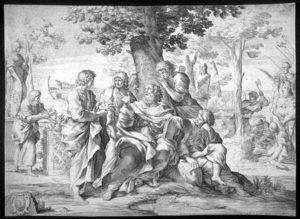In my previous posts, I discussed about investing your time in Ph.D. training aiming as a return to get a (full) Professor position at a University. I also commented on how similar tenure can be with a technology startup.
At the closing event of the “Postdoc Forum Austria” in June 2017 (LinkedIn group and Facebook event), we discussed about the apparent lack of numbers in Austria. As a follow-up, I did some desk research. There are indeed nice numbers produced by the Bundesministerium für Wissenschaft, Forschung und Wirtschaft (BMWFW, Federal Ministry for Science, Research, and Economy) under their unidata initiative. And I guess this is the nice part of it. To boldly summarize:
“The Austrian system outputs every two years more Ph.D. holders
than all tenured professor positions available in the country.” Continue reading “The Game of Thrones in Austria”

